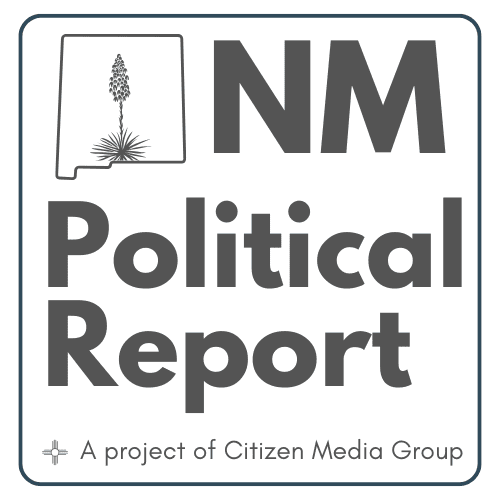A fallen aspen tree that downed a power line sparked New Mexico’s largest wildfire in state history in 2011, burning 156,000 acres in the Las Conchas Fire. Now, U.S. Rep. Teresa Leger Fernández wants to give utilities better tools to prevent the next power line disaster.
Leger Fernández and three other U.S. House members introduced the Weather-Safe Energy Act last week, federal legislation that would create a weather data platform to help utilities prepare for dangerous wind and wildfire conditions.
The bill addresses a growing problem across the Southwest. A Sandoval County jury found Jemez Mountains Electric Cooperative 75% responsible for the 2011 Las Conchas Fire, which started “when a gust of wind felled an aspen tree, downing a Jemez Mountains Electric Cooperative power line,” according to the Albuquerque Journal.
More recently, PNM faces a lawsuit over the 2022 McBride Fire in Ruidoso, which “alleges that the McBride Fire’s cause was a pine tree that blew over onto a power line maintained by the utility” during high winds.
“Wildfires sparked by power lines tend to be larger and more destructive, as they often occur during high winds, which accelerate the spread of fires,” according to research published this year in Nature from scientists at Sandia National Laboratories in Albuquerque and other institutions.
The proposed legislation would give utilities sophisticated weather modeling tools currently unavailable to grid operators. It would also expand research funding and provide training to help energy companies use weather forecasting more effectively.
“When the lights go out during a heat wave, flood, or wildfire, it’s not just inconvenient—it’s a matter of life or death,” Leger Fernández said in a press release from her office.
New Mexico utilities already implement some wildfire prevention measures. PNM announced its first “public safety power shutoff” in March 2025 to prevent fires during high winds in the East Mountains, though conditions improved and the shutoff was ultimately canceled.

This report is supported by NM Political Report, a nonprofit newsroom working to increase New Mexicans’ engagement in politics and public policy.
Reported by: Kevin Hendricks
This report is original reporting by a New Mexico-based independent journalist with support NMreports.org and its readers and sponsors.

Wow thats great news, to some degree, it allows the power companies to shut off power to those who depend on it for life. I can cause people heat stress that could cause them problems also for health devices. Thats where the problems comes in so now we need a device that will take over in that case. To do so would be an auto start genset as many cannot do what is required to manually do it. So like many on fixed incomes the cost is around 10,000.00 installed. Its not easy to come up with that or afford another bill. One reason due to the utilities rising rates, ours is close to 100.00 some months. So what are we supposed to do? Sell out? Move? WHAT? Huge amounts are spent on solar or wind by them which also results in higher power bills. Yet unhoused as they are called by the hundreds get free everything. Governments give away free AC units for those who pay no taxes and live off of the government but no help for fixed income people. I dont live in your state but in the same position as people in your state.